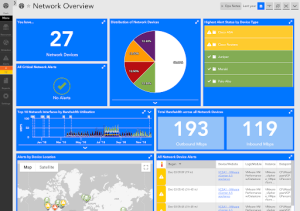Changing climate poses numerous current issues for the region, including the impacts of climate change on food security, ecosystems, and human health. Additionally, rising sea levels are increasing the number and severity of flooding and erosion. Increasing wildfire incidence and severity are also major concerns. The consequences of these threats to ecosystems and human health range from widespread forest die-off and health issues to increased insect outbreaks.
Impacts of climate change on food security
According to the Intergovernmental Panel on Current Issues for the Region – Climate Change (IPCC), the effects of climate change on food security will vary from region to region, and different societal systems will be affected in different ways. Some of the impacts will include continued global temperature rise, altered precipitation patterns, and an increased frequency of droughts and heatwaves.
Climate change has the potential to disrupt the seasonal pattern of food production and distribution, leading to food shortages and escalating food prices. This in turn could result in a decrease in the number of people with access to food. This paper aims to assess how climate change is affecting food security in Nigeria.
Despite its many positive aspects, climate change also poses numerous threats to food security. For instance, it has already led to crop losses and livelihoods. This is a serious problem that is causing alarming food security concerns around the world. In response, global governments have taken measures and initiatives to reduce the negative impacts of climate change on food security. These include the Kyoto protocol, which aims to limit greenhouse gas emissions in the atmosphere.
In the United Kingdom, the government published an assessment of the risks posed by climate change. The report identified eight priority areas, including the risk to food, goods, and vital services. It subsequently proposed several measures that would be incorporated into the country’s new food strategy. However, many of these proposals are controversial.
The new leadership of USAID does not prioritize climate change in its strategy for fighting climate change. Instead, the agency has created a new bureau called the “Resilience and Food Security” that will combine staff from the Office of Water and E3’s Climate Adaptation team. This could streamline the strategies in the future.
Impacts of change on human health
The impacts of climate change on human health are numerous and varied, and many of these risks are particularly severe for vulnerable populations. These include low-income individuals, people of color, individuals with limited English proficiency, Indigenous peoples, children, pregnant women, older adults, and members of vulnerable occupational groups. In addition, climate-related hazards also increase the risk of disease, especially from vector-borne diseases.
Some of the health risks associated with climate change are very extreme, such as extreme heat or drought. This increases the risk of developing cardiovascular disease and other diseases. Water contaminated by floods can also be a major health threat. Flooding also makes water unfit for drinking, and it can be contaminated by bacteria, viruses, and chemicals. These conditions can lead to water-borne illnesses and food insecurity. Other impacts of climate change on human health include mental health issues, such as lowered quality of life, and chronic stress.
People suffering from chronic medical conditions are especially vulnerable to the effects of extreme heat. Moreover, people who suffer from pre-existing mental conditions can be at greater risk of death during heat waves. This is particularly true for people who take medication for mental disorders. They are unable to regulate their body temperature properly, and their mental state can deteriorate further.
While global indicators are useful for tracking climate-induced health risks, they do not provide a detailed picture of these impacts. We need to develop disaggregated indicators to measure the health effects of climate change. This will help us develop a more comprehensive understanding of climate-induced health risks.
As Earth’s climate continues to warm, the impacts on human health will increase. The projected climate change will lead to widespread malnutrition and higher risks of respiratory diseases and cardiovascular diseases. In addition, the rise in temperature will increase the number of infectious disease vectors. Moreover, air pollution will worsen in urban areas, increasing the incidence of cardio-respiratory disorders.
Besides the direct effects on human health, climate change can affect the environment, causing more severe and frequent natural disasters. For instance, heat waves will be more intense and may even kill people. Meanwhile, air pollution from pollution will worsen lung disease, and changes in the climate can affect plant distribution, causing seasonal allergies and a number of other illnesses.
Impacts of climate change on ecosystems
The physical environment of many ecosystems is rapidly changing due to climate change. For example, ocean temperatures are becoming more acidic and freshwater is becoming less clean. Rapid changes in these environments can disrupt entire ecosystems. Changing climates also shift the geographic range of ecosystems. For example, rising temperatures are causing species to move poleward from warmer regions and reducing sea ice in regions with colder climates. Rising temperatures can also change the timing of seasons.
The changes in the ecosystems can have a variety of effects, from a loss of biodiversity to reduced carbon levels. Changing ecosystems can impact human societies and the economy in a variety of ways. Some changes may be immediate and visible, while others may not be as obvious until they reach an extreme.
While climate change will affect all ecosystems, some are more vulnerable than others. Arctic ecosystems will be particularly affected by the onset of climate change, since the climate in this region is particularly vulnerable to the effects of global warming. Recent data shows that if the climate continues to increase at current rates, there will be virtually no summer sea ice in this region within a few decades. These changes will have profound effects throughout the northern hemisphere.
Although the impacts of climate chon ecosystems are not yet fully understood, some key findings from recent climate-change research indicate that the changes will affect US ecosystems and biodiversity in a variety of ways. For example, ecosystems will become less able to regulate water flows and improve water quality. Additionally, species ranges will shift and critical biological events may occur at different times. This will ultimately affect ecosystems’ biodiversity and ecosystem services.
While global climate change has had a relatively small impact on biodiversity and ecosystems, the impacts are increasingly evident and are expected to intensify over the next three centuries. A combination of factors such as long-term warming, ocean heatwaves, and increased temperatures are increasing the stress on ecosystems. In addition, many ecosystems will have to adapt to its associated impacts.






